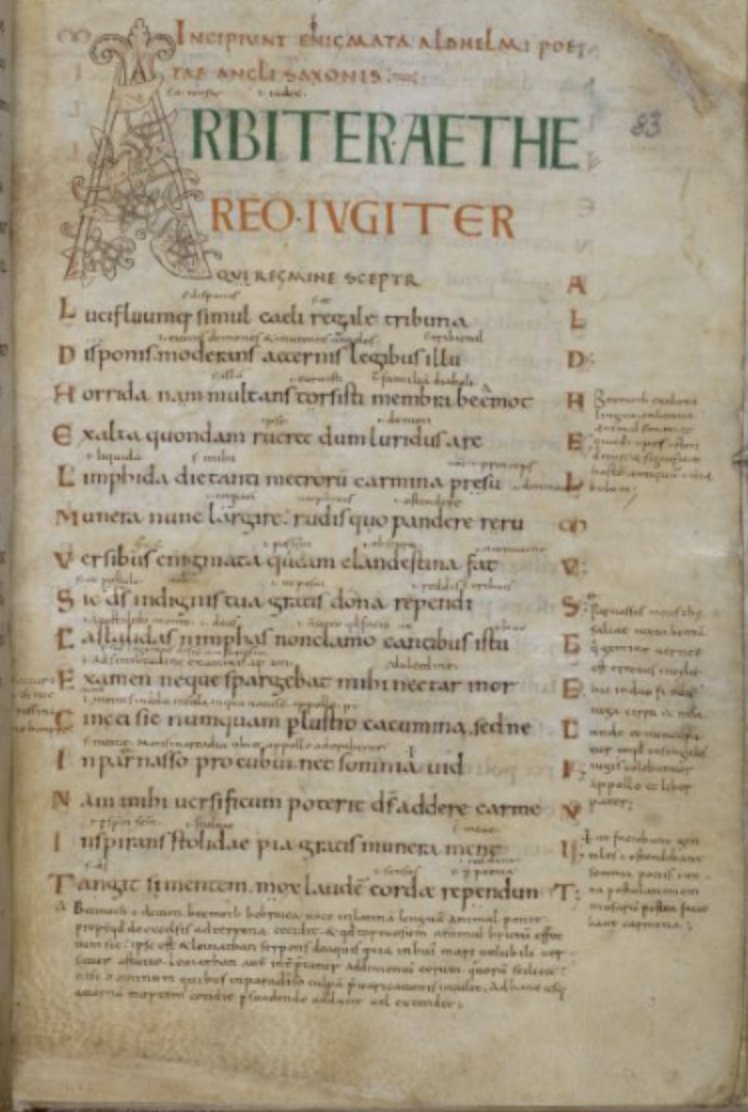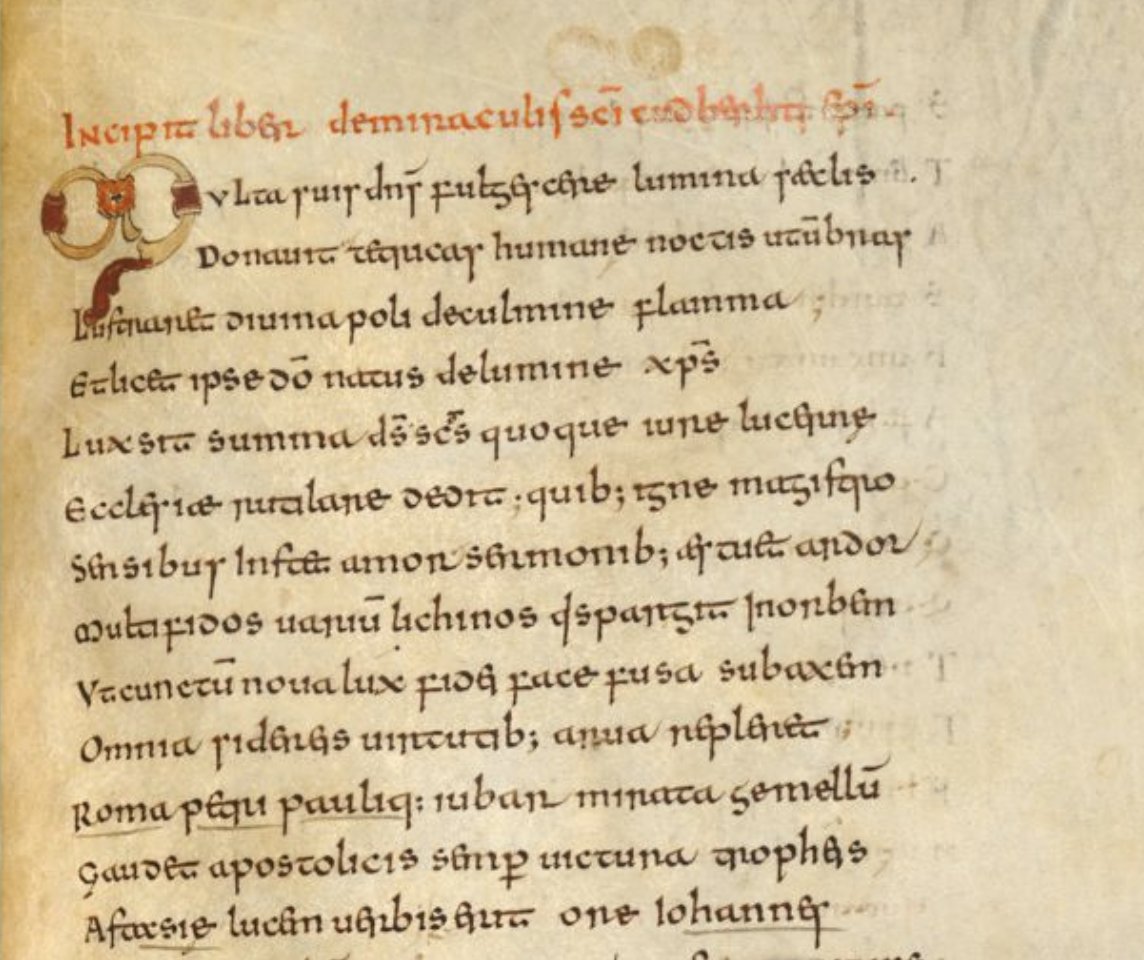Today is the feast day of two Anglo-Latin poets: Aldhelm and Bede.
Aldhelm was educated at Canterbury under Hadrian. He was appointed Abbot of Malmesbury Abbey and eventually became the Bishop of Sherbone. Aldhelm was also an accomplished poet, becoming the first Englishman to write quantitative verse in Latin (at least of which we know).
Aldhelm wrote at least four poetic works: the Aenigmata (Riddles), Carmen de virginitate, Carmina ecclesiastica, and the Carmen rhythmicum. The Aenigmata (below, Royal MS 12 C XXIII) begins with with a preface that both rejects yet invokes various Classical references.
& #39;I do not call upon yonder Castalian nymphs in songs, nor did any swarm sprinkle nectar in my mouth; I never so surveyed Cynthus& #39; peaks, nor did I ever sleep upon Parnassus, or see dream- visions. For God will be able to grant me versified song& #39; (trans. E. Thornbury)
25 May is also the Feast Day of Bede, who is perhaps known more as a historian and theologian than as a poet. But some of Bede& #39;s Latin poetry survives, including his major poetical work, the Metrical Life of St Cuthbert.
But Bede was also known for including poetry within his prose works, such as those smaller poems found in his Historia Ecclesiastica: https://twitter.com/cmcurran21/status/1250726913536151553">https://twitter.com/cmcurran2...
Whereas Aldhelm might have been the first Englishman to write in Latin quantitative verse, Bede was seemingly the one who perfected it. There are two versions of his Metrical Life of St. Cuthbert: the Besançon recension and the & #39;vulgate& #39; recension (CCCC MS 183).
Between these two versions, the reader can see Bede playing with and correcting his metre.
(The only freely-available image of the Besançon manuscript is this one, so - Besançon, Bibl. mun., ms. 0186, f. 162)
(The only freely-available image of the Besançon manuscript is this one, so - Besançon, Bibl. mun., ms. 0186, f. 162)
So, today, on the feast day of two of the greatest Anglo-Latin poets, please enjoy some Anglo-Latin dactylic hexameter (all of which will be readily available on our website when we launch).
(Also, yes, we all find it a bit strange that some of the greatest Anglo-Latin poets died all around the same time of the month as each other and separated only by years)
(Maybe we should make dying in mid- to late May a requisite for being an Anglo-Latin poet, who knows)

 Read on Twitter
Read on Twitter




